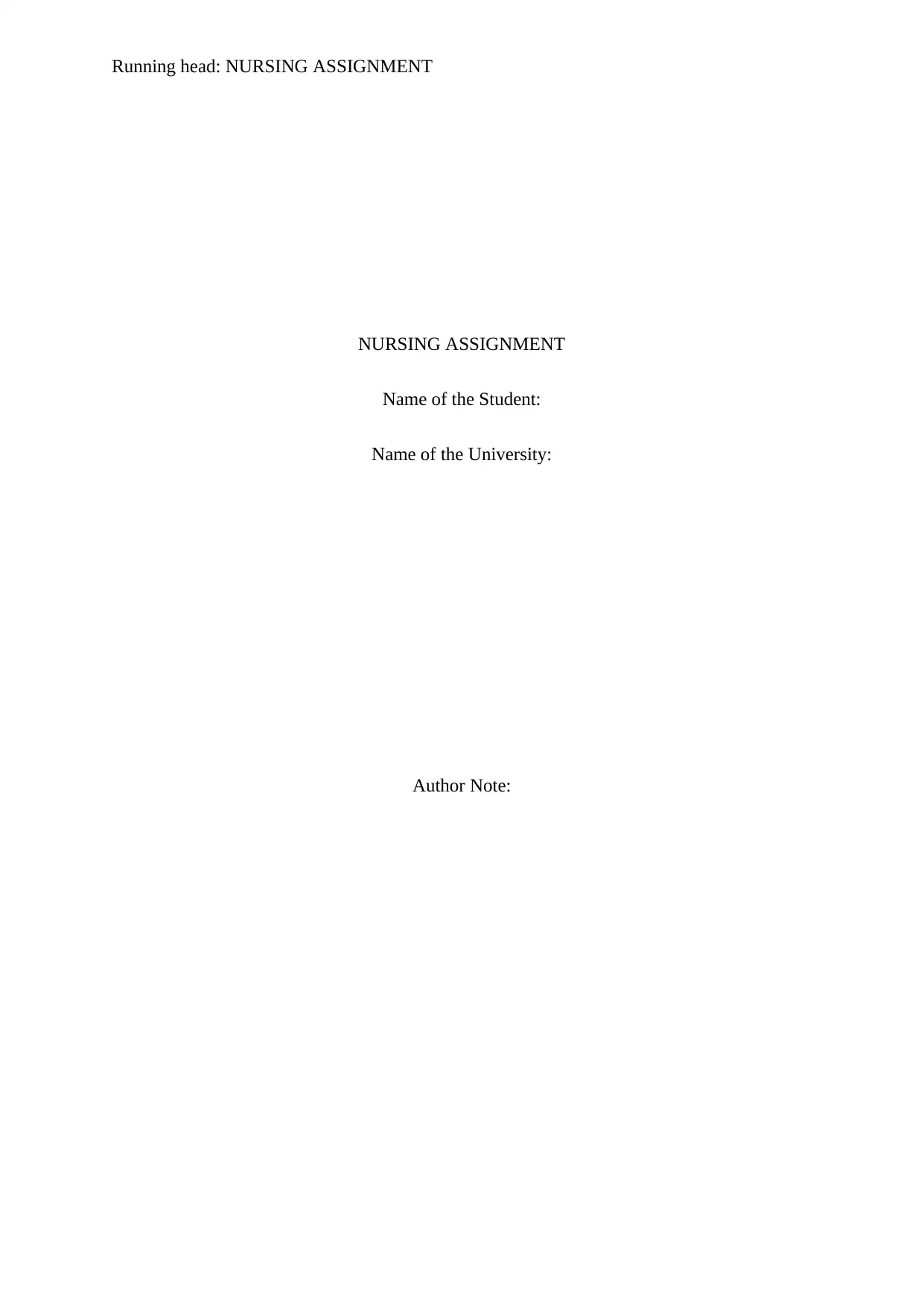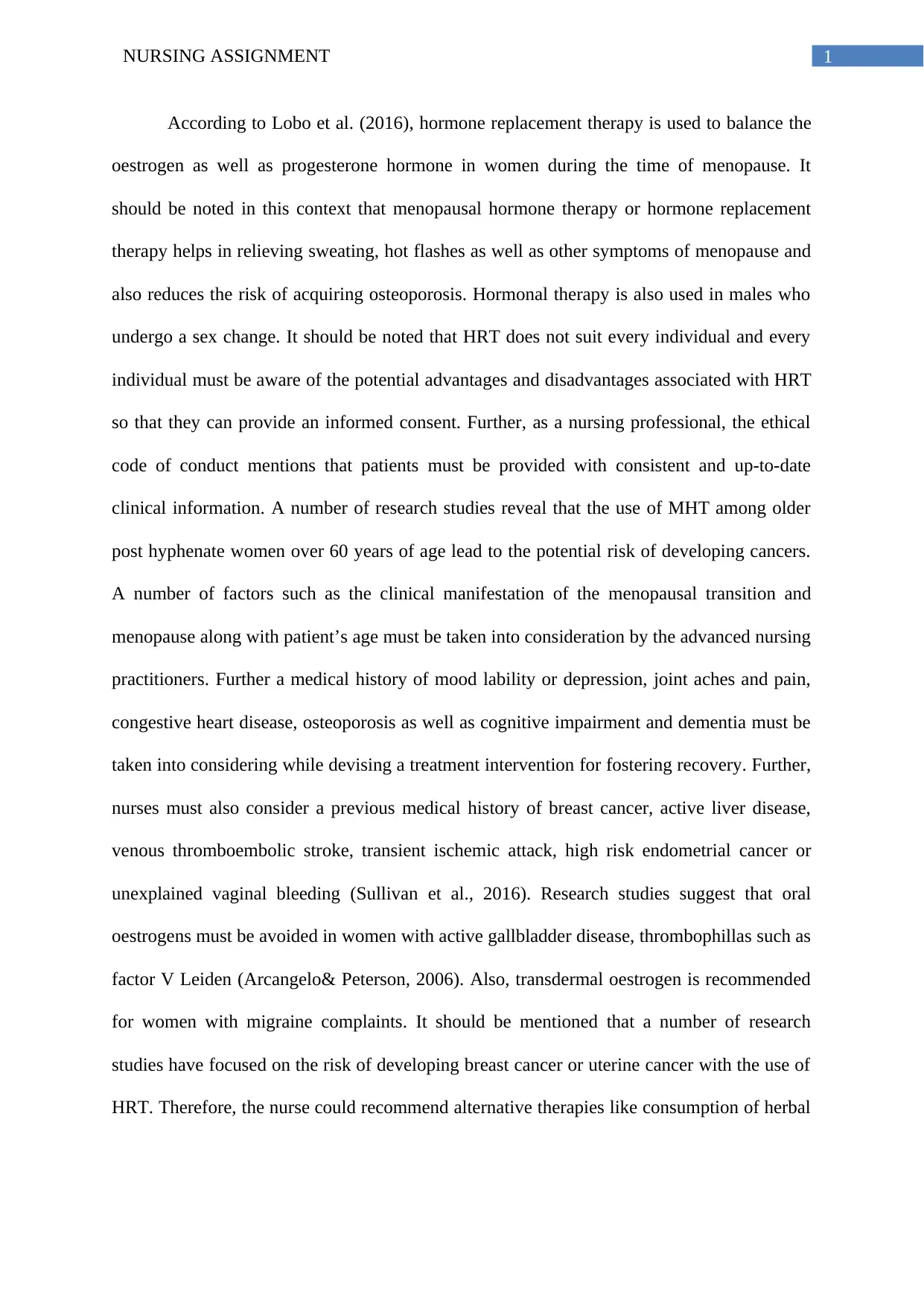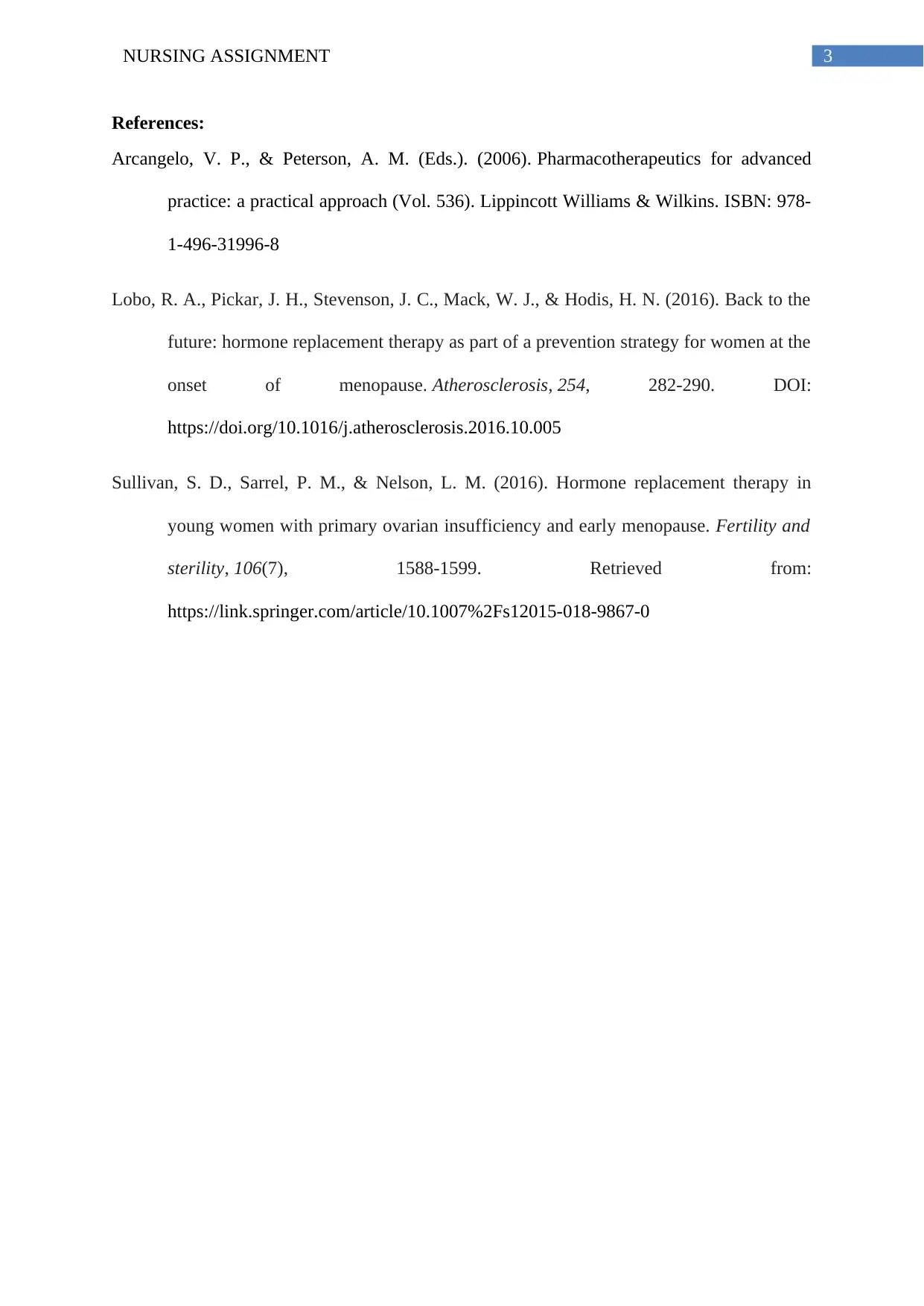Hormone Replacement Therapy and Menopause: A Nursing Assignment
VerifiedAdded on 2022/12/27
|4
|580
|48
Report
AI Summary
This nursing assignment report examines hormone replacement therapy (HRT) and its implications for women experiencing menopause. The report discusses the use of HRT, including its benefits in alleviating symptoms like hot flashes and reducing the risk of osteoporosis, while also acknowledging the potential risks, such as increased cancer risk, especially for women over 60. The assignment emphasizes the importance of considering factors like patient medical history, including mood disorders, heart conditions, and previous cancers, when evaluating HRT. It underscores the need for nurses to provide patients with updated clinical information and to consider alternative therapies, such as herbal supplements, to manage menopausal symptoms while minimizing health risks. The report references relevant research and guidelines to support its conclusions and recommendations.
1 out of 4










![[object Object]](/_next/static/media/star-bottom.7253800d.svg)